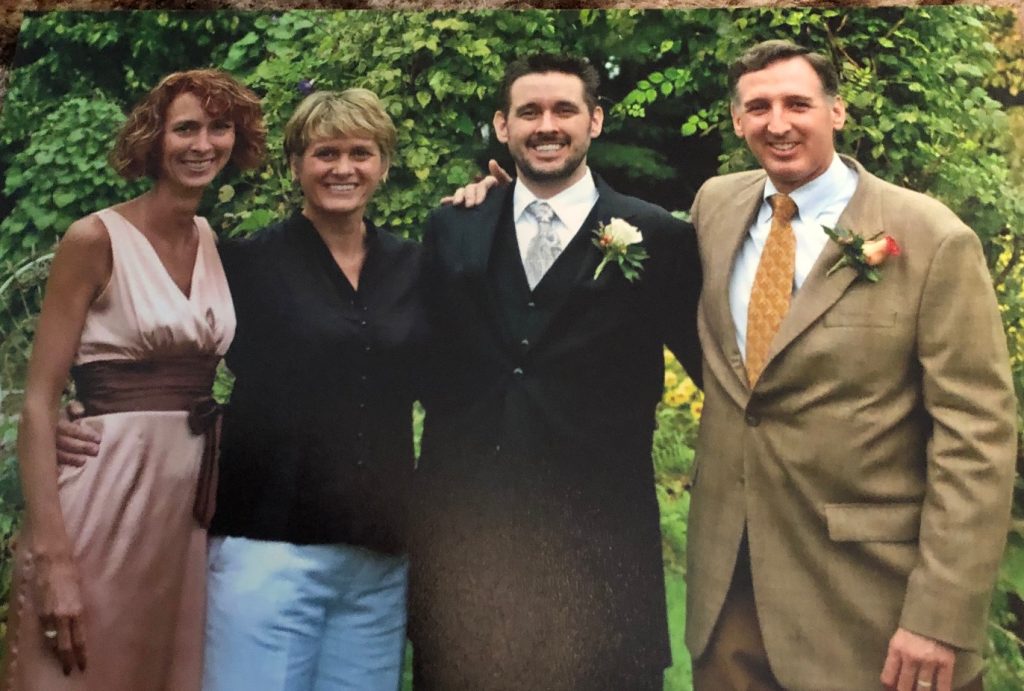French Vocabulary – Talking about family Posted by Tim Hildreth on Sep 10, 2019 in Vocabulary
I just finished a book called Mon frère (My bother) in which the French écrivain (writer) Daniel Pennac interweaves his memories of a dear older brother with excerpts from a Herman Melville short story. The short text, which I picked up last summer on my trip to France avec mon fils (with my son), touched me … and taught me a new word.

Puîné
I can honestly say that until Mon frère I had never encountered this word. From the context in the book I had a pretty good idea that it related to the birth order of one of Pennac’s brothers. And from the sound of the word, I guessed that it must relate to a younger brother (or at least not the oldest). You see puîné(e) sounds like a combination of the French words puis* (next, ensuing, after) and né (born, the past tense of naiîre). Logically then le puîné would be “the one born after”.
While puîné isn’t used much anymore, there are a number of useful words in French that are commonly used when talking about la fratrie (relationships between siblings).**
| Français | English |
| L’aîné(e), n. | The oldest |
| Aîné(e), adj. | Elder |
| Cadet / cadette, adj. | Younger |
| Le benjamin / la benjamine***, n. | The youngest |
| enfant unique, n. | only child |
Let’s look at some examples from my own life.
Dans ma famille, il y a quatre enfants. / There are 4 children in my family.
J’ai un frère et deux soeurs. / I have one brother and two sisters.
Mon frère Thomas est l’aîné. / My brother Tom is the eldest.
Je suis le plus jeune. Je suis le benjamin de la famille. / I am the youngest. I am the baby of the family.
Mes sœurs sont Tracy et Terri. Tracy et Terri sont plus jeunes que Tom, mais elles sont plus âgées que moi. / My sisters are Tracy and Terri. Tracy and Terri are younger than Tom, but they are older than me.
Pour Thomas, Tracy et Terri sont ses sœurs cadettes. / For Tom, Tracy and Terri are his younger sisters.
Pour moi, Tracy et Terri sont mes sœurs ainées. / For me, Tracy and Terri are my older sisters.
* The accent circonflexe in puîné (like the one in aîné) represents an s that used to be part of the word. You can read more about that – and the other French accents – here.
** While fraternité is often translated as brotherhood, it means more than that. It refers to the relationship between siblings, and more generally (as in Liberté, égalité, fraternité) to the special bond between people (the brotherhood of man). When applied more specifically to the genealogy of siblings – as Emmanuel points out in the comments – we would say la fratrie instead of la fraternité.
*** The term benjamin comes from the Bible. Benjamin was the youngest son of Jacob in the story of Joseph and his many-colored coat in Genesis.

Build vocabulary, practice pronunciation, and more with Transparent Language Online. Available anytime, anywhere, on any device.




Comments:
Emmanuel:
Hi Tim ! Nice blog, very interesting and lots of good stuff!
In this context, brotherhood would be translated as Fratrie in French, not Fraternité (which is the deep feeling that all manhood are brothers).
Cheers !
Tim Hildreth:
@Emmanuel Merci, Emmanuel! I’m glad you like the posts and I appreciate your clarifications and comments. Tim